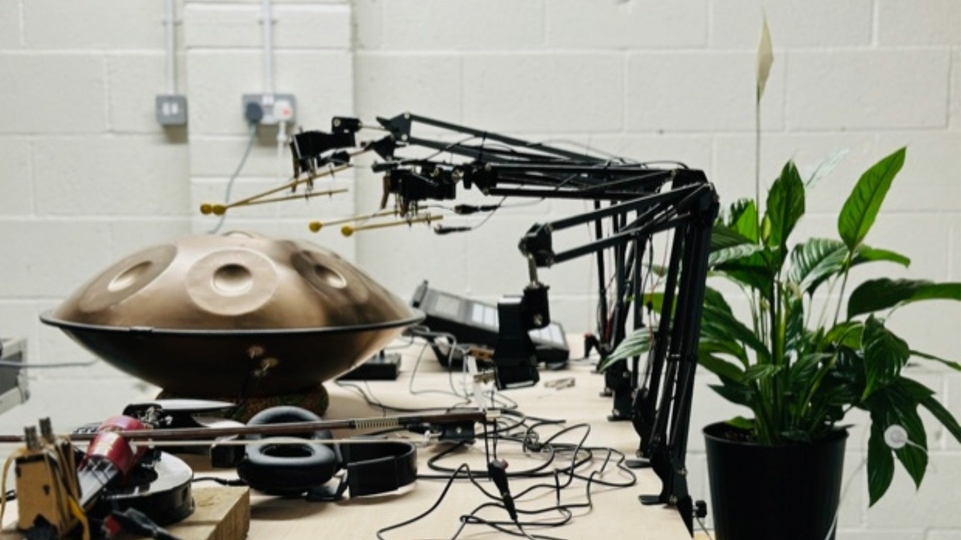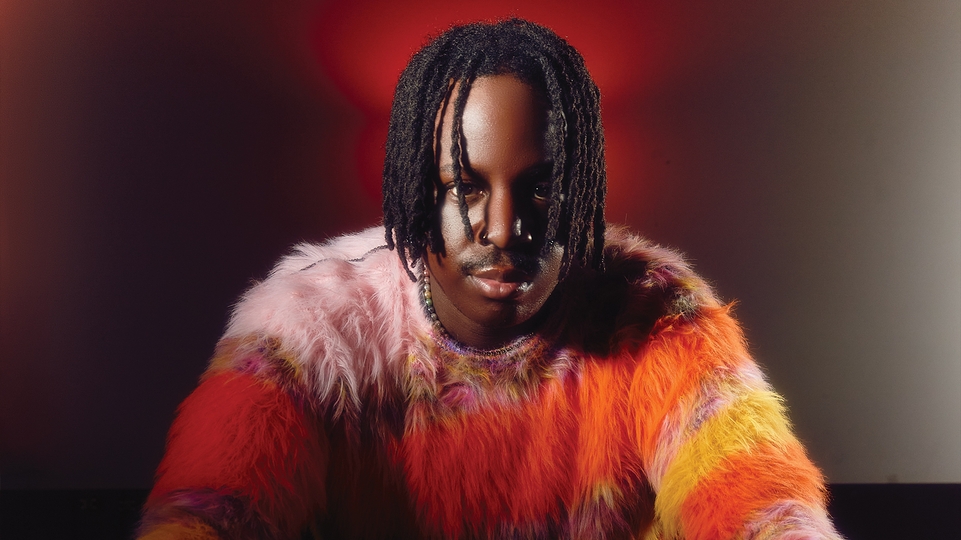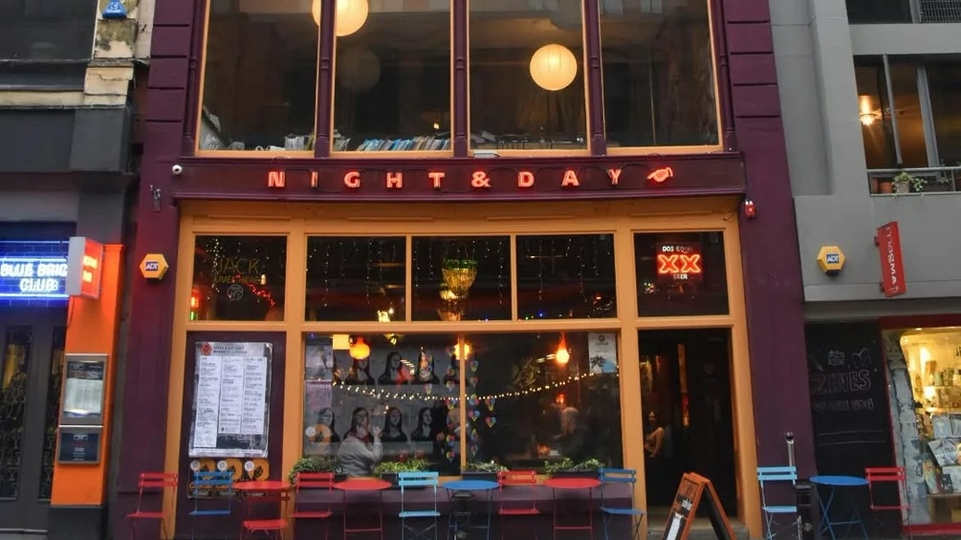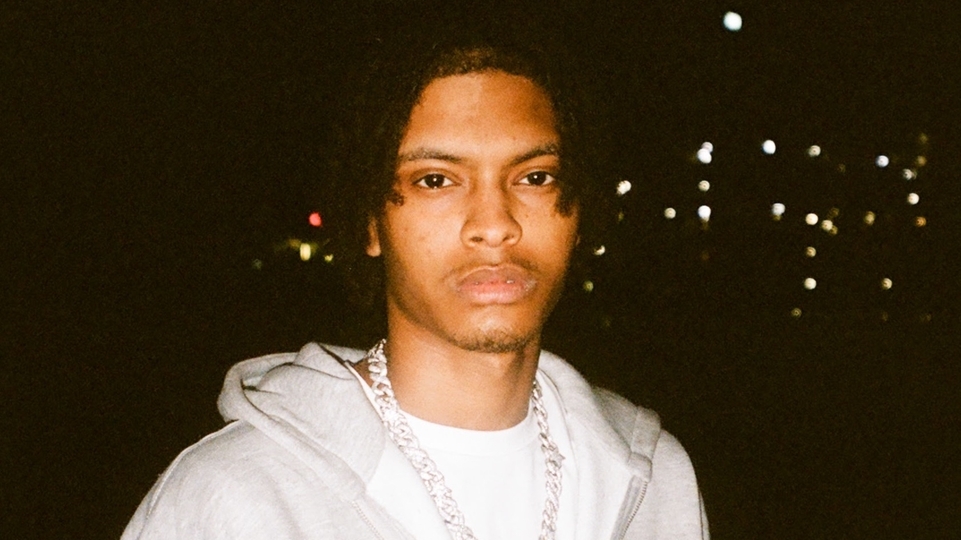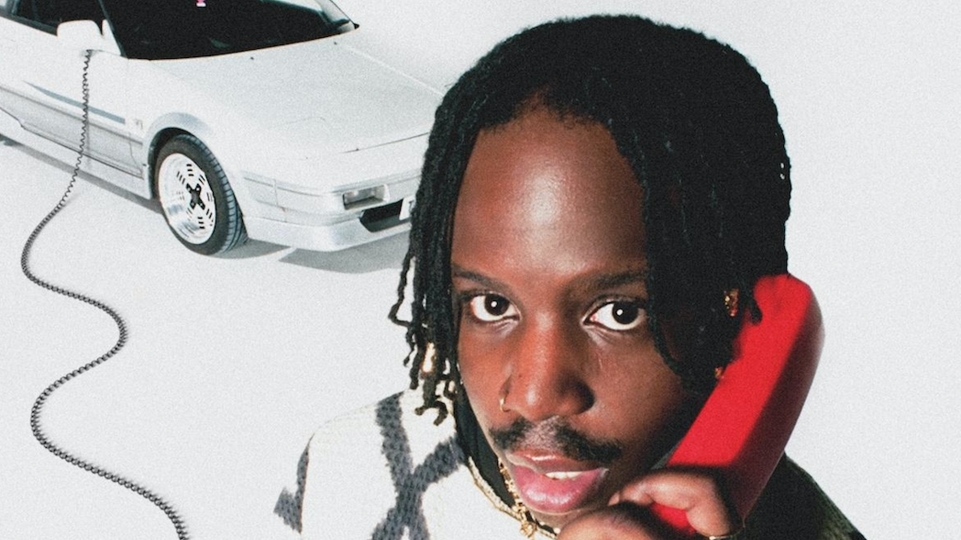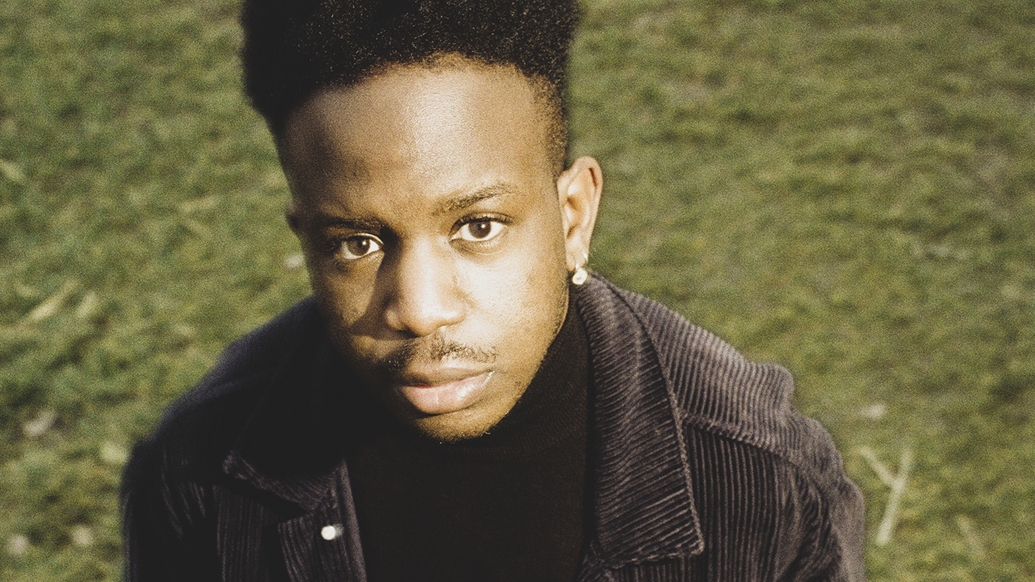
salute: feel good philosophy
Manchester-based salute approaches dance music with a refreshingly unpretentious philosophy, which they've applied to their uplifting productions. Inspired by their youth in Vienna and video game soundtracks, they chats to Kristan J Caryl about their quest to make listeners feel good
Update 07/02/2023: This feature has been updated to reflect salute's use of they/them pronouns
“Just fucking have fun,” says 25-year-old, Manchester-based, Austrian-born salute. “That is literally all there is to it, because to me, a lot of dance music feels very pretentious and calculated. I don’t take myself too seriously when I make music, and I find that liberating.”
There is something incredibly refreshing about the views of salute (real name Felix Nyajo). And about their music, too — airy, with a lightness of touch, it uplifts despite often being tinged with melancholia. Nyajo qualifies their opening MO with a sensitivity beyond their years. “Be kind, be respectful, protect the people you love and care about, and have fun,” they say. “But you look your best when you don’t give too much of a shit.”
They certainly don't care what people think. They makes happy, accessible music that wears its heart on its sleeve and is unapologetically infectious, but never cheap or obvious. Take the new single ‘Want U There’, a joyous and uplifting jam with bittersweet chords and hints of Daft Punk’s clean filtered loops, layered over drums with the slightest hint of garage and a perfect pair of vocal samples. It seems simple on the surface, but wouldn’t work if it weren’t so perfectly executed. It is also one of those tunes that many wannabe-elitists would write off as intrinsically lacking value, simply because it is happy.
“I’m not sure it’s worth engaging with people who think that is the case, because that take doesn’t even make sense,” says salute. “Gospel, disco, funk... I think you have to be deeply unhappy to think only sad and angry music has any value. People who say that need to get over themselves.” These days, salute understands the roots of their sound are in those genres and associated marginalised communities, but they didn’t always.
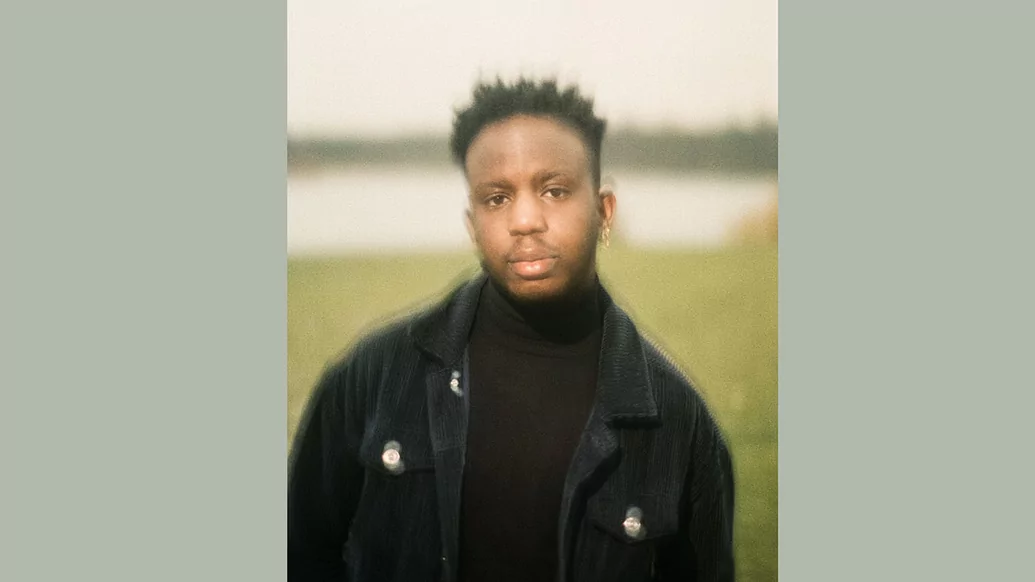

SENSE OF IDENTITY
Nyajo’s parents moved to Europe from Nigeria in the early ’80s. They initially settled in Belgrade, the capital of what was then Yugoslavia, but managed to move on to Austria before the start of the Yugoslavian war. salute was born in Vienna and lived there until they were 18.
“Growing up in Austria, it was very easy to assume house and techno were white European genres of music,” they say. “It wasn’t until I was around 15 or 16 that I started to learn more about the origin stories of dance music sub-genres. I was blown away. It made sense, but I hated the fact that none of it seemed to be common knowledge.”
Nyajo and their family lived in Donaustadt in the 22nd district. “It gets a lot of flak back home for not being a cool place to live, but I really enjoyed living near forests and creeks, even if that meant it took ages to travel to the city centre from home,” they say. “I loved riding my bicycle and playing football with my friends, although I was pretty awful at the latter!”
Having painted a rather idyllic picture, it is no surprise Nyajo remembers Vienna as “a great city” and says their childhood was mostly fine. But being Black and working-class in a very white and middle-class city certainly came with its own issues.
“I struggled with my sense of identity, and racism was a problem consistently,” they say. “I was the son of a cab driver and a nurse, and sometimes we struggled, but overall we were good. My family is Christian, so we spent most Sundays at church. That was our community. We couldn’t really afford holidays, but we did come to London a lot to visit my cousin and their family. We’d all stay in their tiny council flat in Colindale, and my cousin would teach me London slang.”
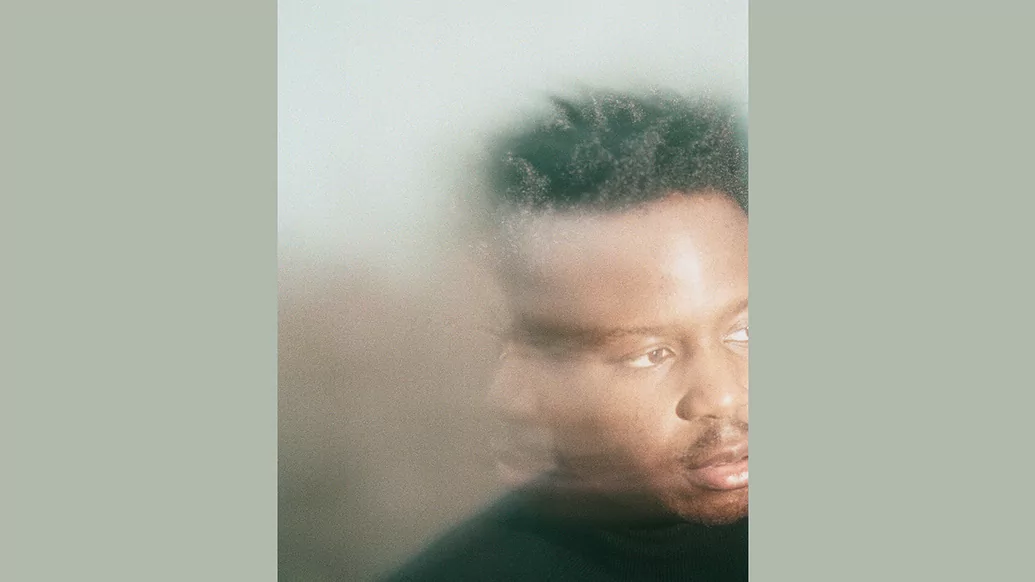
INSPIRATION
salute's first proper night out in Vienna was at a party called FLEX when they were 17, which was also the same year they started DJing in clubs. The name of the DJ playing escapes them, but the music was drum & bass, which was their favourite at the time. House, techno and dubstep, as well as more leftfield electronic music that couldn’t quite be categorised — “Cid Rim, Dorian Concept, Wandl, to name a few” — could also be heard in the city. “A year-and-a-half passed between my first night out and my move to England, but the time spent in clubs was amazing,” he tells DJ Mag.
The move to the UK came in 2014, when Nyajo went to Brighton for university. “I quickly realised it wasn’t for me and quit to focus on making music,” they say. “The first few months were a struggle, as I didn’t have any real friends. I felt isolated. I’d go to clubs on my own just to listen to music and then go back home. It sounds a bit sad, but I really quite enjoyed it. It took me a good while to feel settled, but once I did, I found myself in a great place creatively, and often in places like The Arch, Audio before it reopened as Patterns, and Concorde 2.”
A couple of years later, he decided he wanted to be “up north”, so in 2016 moved to Manchester with a mate. At this point, Nyajo had already been DJing and making tunes on Fruity Loops for years. They first had their interest in production piqued after hearing the ‘Sonic Rush’ soundtrack by Hideki Naganuma.
“I had no idea what it was, but it felt so exciting to me and got me interested in how people could make music on a computer.”
Later on, the SSX Tricky and FIFA Street 2 soundtracks solidified their love for electronic music thanks to the inclusion of tracks by DJ Marky, Pendulum and DJ Fresh. Felix also cites their older brother’s exploits on an old Yamaha keyboard as a big influence: “He introduced me to the bulk of music I was listening to until I developed a taste of my own.”
Nyajo’s latest single, follows the critically acclaimed ‘Condition EP’ trilogy, which got big support across the BBC radio networks and first got their name out there, and the breezy ‘Jennifer’ from earlier this year. Much of their music has a sense of longing and a beautiful air of melancholy, which he says might come from growing up around their parents’ gospel and r&b, but also because he is a “huge sucker for sad, soulful and dramatic songs”. He also lost their grandparents in late 2017 and says that, “production felt like the best way to channel what I was feeling, but I definitely just love to write music for the sake of it, too”.
After a year spent “unlearning behaviour where I measured my worth by my output”, Nyajo now continues on their simple but effective mission. “I want anyone who listens to my music to feel good about themselves while doing so. That feeling of confidence, that is sexy to me.”
